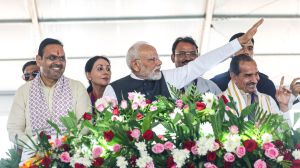U-turn: Rlys shelves plan to monitor rolling stock
After having secured the approval of the Union Cabinet to set up four Operational Commands to monitor...

After having secured the approval of the Union Cabinet to set up four Operational Commands to monitor and control rolling stock on the Indian Railways network, the Railways Ministry, in a sudden U-turn, has now decided to shelve the plan.
The Ministry’s volte-face, reported to be a fallout of an internal organisational battle for authority, has not gone down too well with the Cabinet Secretariat which, sources said, has expressed displeasure over the move. It is learnt that the Rail Bhavan was told that they will need to move a fresh Cabinet note to scrap the proposal.
The plan essentially envisaged setting up of four Operational Commands at Delhi, Mumbai, Kolkata and Chennai with an objective to increase the efficiency of rolling stock movement. While mooting the plan, Railways had argued that the increase in the number of Zonal Railways from 9 to 16 had resulted in a corresponding increase in interchange points from 94 to 178 and had made the task of monitoring and controlling the rolling stock movement very difficult. This had also affected adversely the turnaround of wagons and optimum utilisation of rolling stock, the Ministry had said, arguing that setting up of these Operational Commands would bring down the number of interchange points from 178 to 28 and would increase efficiency.
These Commands would have been set up over the existing Zonal Railways in a region and would have controlled freight movement within their regions, which would cut across Zonal Railways. For instance, the Northern Command would have had three Zonal Railways — Northern Railways, North Western Railways and North Eastern Railways — under its control. Railways had proposed the creation of four posts of Director General (Transportation) to head these Commands.
However, the proposal that sought to give overriding authority to DG (Transportation) over Chief Operating Managers (COMs) and Chief Freight & Traffic Managers (CFTMs) of Zonal Railways became a bone of contention within the ministry. Officials argued that this would undermine the authority of the General Manager, the officer heading a respective railway zone.
Further, the fact that COMs and CFTMs would be required to report to the DG (Transportation) regarding the control of freight train movement further created ripples. But what finally set the alarm bells ringing was the fact that the proposal gave the DG (Transportation) authority to countersign the Annual Confidential Reports of the COMs and CFTMs.
The proposal was cleared by the Union Cabinet on December 18, 2006. However, changing tack, Railway Minister Lalu Prasad Yadav wrote to Prime Minister Manmohan Singh recently stating the proposal was not practicable. Stating that he wanted to withdraw the proposal, Yadav wrote that he had advised the Railway Board to pose the proposal to the Sixth Pay Commission for consideration. “On review, Railway Ministry has decided that these posts are not immediately required. The issue regarding these posts will be posed before the Sixth Pay Commission,” said a Railway Ministry spokesperson.




- 01
- 02
- 03
- 04
- 05


























